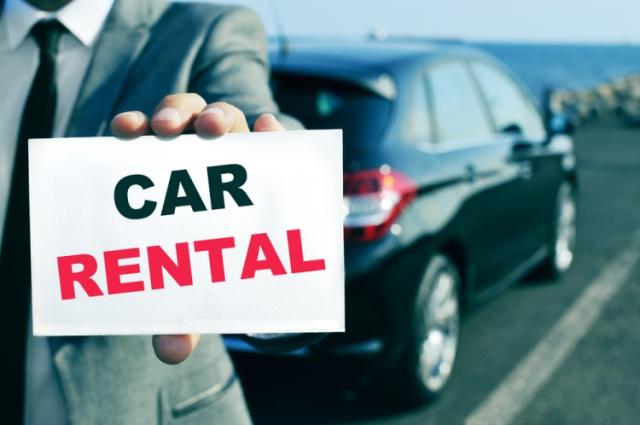Recommended Suggestions For Selecting A Car Rental Site
Recommended Suggestions For Selecting A Car Rental Site
Blog Article
What Do You Think Of The Insurance Coverage Provided By The Rental Company For The Vehicle?
To avoid unnecessary costs and be properly secure, it's essential to review the coverage options and insurance that your rental company offers. Here's how you can effectively look over the insurance policy when renting a car: Understand the basics of coverage: Begin by understanding the basic insurance coverages are included in the rental agreement. The majority of rental companies offer basic liability coverage that protects property of third parties and bodily injury in case of an accident where you're the one at blame. These coverages may come with the possibility of deductibles or limits.
Consider Additional Insurance Options. Rental companies offer additional insurance options to protect you. The most popular additional protection is Collision Damage Waiver. This will reduce or eliminate the financial liability you bear for vehicle damage. Loss Damage Waiver also covers theft and damage.
Examine the limits of coverage and deductions. Review the coverage and deductible limits for each option of insurance. Calculate the maximum the insurance company will pay in the event of a incident or damage. Also, calculate the amount of money you will be responsible for yourself (deductible) prior to the insurance coverage taking in.
Personal Insurance Policies. Check to see whether you are covered by your credit card or insurance policy. Some credit card companies offer secondary insurance for rental cars when you use the card. You may be covered under your personal auto insurance for rental cars. But the insurance coverage is contingent on your policy.
Assess your risk tolerance. When deciding whether or not you should purchase additional coverage, consider your financial situation and risk tolerance. If you're looking to have security and worry about theft or damage of the vehicle, purchasing insurance coverage may be worth it. If you've got adequate insurance elsewhere, you may decide to skip the insurance provided by the rental firm to reduce costs.
Check out Exclusions and Exclusions: Ask the rental agency if there are any limitations or exemptions to the insurance coverage. For example that if the vehicle is used for commercial purposes and is a commercial vehicle, it might be excluded from the insurance. Be sure you're aware of all the details of the policy to avoid unpleasant surprises.
Document Existing damage: Before signing the rental agreement, you should thoroughly inspect the vehicle for indications of damage. Take photos or videos of any damage, like scratches, dents, or other damages and note it on your rental agreement. It will protect you against being held responsible for any damage you may have caused before you returned the vehicle.
It is important to carefully look over the insurance options and policies offered by your rental firm. This will enable you to make a well-informed decision regarding the security you require during your rental time, as well as reducing the amount of unnecessary expenses. Read the most popular our website on Rent Cars Around the World for more advice including car rental luxury near me, one day car hire, rent our car, cars for rent near me, car in rent near me, booking rental car for someone else, rental can, hire a car for the weekend, hire cars under 25, fancy cars for rent and more.
How Can You Better Familiarize Yourself With Rental Companies' Rules?
To make sure that your rental runs smoothly, you should be aware of any rules that the rental company has on the different aspects of renting a car. Here's how you can learn about the rental company's guidelines regarding age restrictions, driver requirements, mileage limits as well as fuel policy and any additional charges for extras: Check the Rental Company's website Begin by visiting the rental company's website and reviewing their terms and conditions or rental policies section. On their websites, many rental companies provide detailed information regarding their policies. They include age restrictions and driver requirements. They also provide the limits on mileage and fuel policy details.
Rent Agreement Be sure to read the agreement carefully before you sign. The rental agreement contains important information about the terms and condition of the rental. This includes any restrictions, requirements or fees that are associated with it.
Contact the Rental Firm If you'd like to learn more about their policy or have any questions, you can contact them. To find out about any limitations on age, requirements for drivers or mileage limits as well as fuel policies or additional fees, you can reach their customer support department.
Age Restrictions - Find out whether the car rental firm has age restrictions. Some rental companies have the minimum age and charge extra for renters under the age of.
Find out the requirements for drivers of the rental business. Rental firms typically require a driver's licence and a clean driving record in addition to age restrictions. Some companies will also require a specific length of time a driver has held their license.
Know the mileage limitations of the rental company. The majority of rental agreements include a specified number of miles (or kilometers) per day. Extra mileage could be subject to additional charges. If there are any restrictions regarding where you can use the rental car be sure to check if they apply.
Policy on Fuel: Go through the rental company's fuel policies to understand how fueling the rental vehicle works. Some companies insist that you return your vehicle with a full tank, while other permit you to purchase tanks or pay for refueling charges in the event that you do not.
It is also advisable to inquire about additional charges for items such as GPS systems, car seat and many other accessories. Rental companies can charge an additional fee for added services or amenities, so it is important to know the costs of these additional services upfront.
Avoid unwelcome surprises and miscommunications by being familiar with rental policies. It includes age restrictions as well as requirements for drivers. limits on mileage, fuel policies and any other charges.
What Are The Requirements To Return A Rental Vehicle?
It's essential to go over the conditions and terms of returning the rental car to ensure that the process is smooth and hassle free. Here are the key points to keep in mind the designated drop-off location: Verify the designated drop-off location in the rental agreement. You are required to return the vehicle at the agreed-upon location. You should confirm the exact location of any drop-off of your rental vehicle.
Acceptable Return Times: Confirm the return times that have been agreed upon. Rental companies specify a specific date and time to return vehicles. To avoid any charges for late or penalty fees be sure to return the car by the deadline specified.
Late Return Penalties - Read the rental agency's policies on late return and any penalties that may be associated. Returning a car later than the scheduled time can cause additional fees as well as late charges and other penalties. Some rental companies charge the full rental rate per day for late returns.
Extension Options: If you anticipate that you will require the rental vehicle for longer than you originally anticipated, ask about extension options. Certain rental companies permit you to extend the rental period. This is subject to availability and could result in additional charges. Contact the rental company in advance to request an extension, if needed.
Return Conditions: Understand the requirements of returning the vehicle in good state. Most rental agreements state that the vehicle must be returned in the same condition as when it was rented, with reasonable wear and tear to be expected. Make sure you follow the instructions for cleaning the vehicle and removing personal belongings before returning it.
Inspection of the vehicle upon return Inspection of the Vehicle at Return on the vehicle prior to returning it to your rental company. Check for new damages or issues that could be present during your rental. Record any new damage or concerns and alert them to the attention of the rental company's representatives.
Return Process: Get familiar with the process of returning and all paperwork or procedures that are required to return the rental vehicle. Follow the directions of the rental company when you return keys and other paperwork. Additionally, you will receive a receipt of your return.
You can avoid charges and problems by reading these aspects, as well as the terms and conditions of the return of your rental car.
